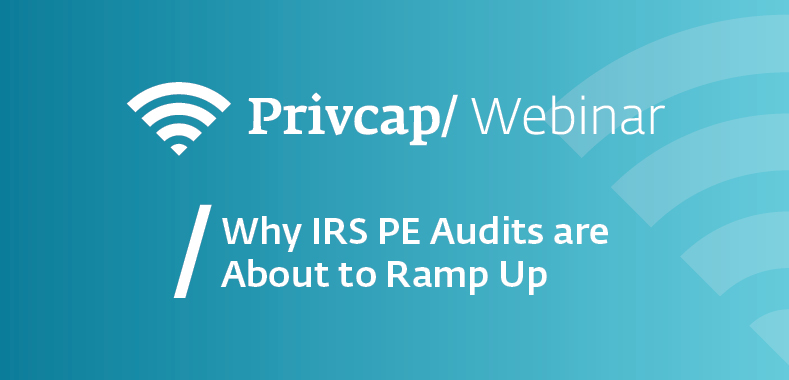SEC, IRS Scrutiny of Funds ‘The New Norm’
U.S. financial regulators and tax authorities are setting their sights on the private equity and private real estate industries—and their attention is only expected to grow over time, say Goodwin’s Mandee Gruen and Roy Smith
It’s not just the Securities and Exchange Commission that’s knocking on real estate fund managers’ doors these days—so too is the Internal Revenue Service.
As scrutiny of the alternative asset classes, and private funds within them, increases, both U.S. regulators and tax authorities are paying much closer attention to how the industry operates— bringing a laser focus on issues including the disclosure of fees and expenses to investors, as well as on the use of tax-blocking financial structures.
One of the latest sets of rules to impact the private fund market is the U.S. government’s proposed regulations under section 385 of the Internal Revenue Code. The change, introduced in April 2016, impacts the use of debt-equity structures and, while it was introduced by the U.S. Treasury and IRS primarily to restrict corporate tax inversions, it’s having a dramatic effect on M&A transactions and ordinary corporate finance and tax operations.
“This has been an area where managers and advisors may have traditionally been a little ‘loosey-goosey’ about enforcing the terms of the debt, but the IRS is focusing on these structures now and it’s going to have a real practical impact on funds that use leveraged C-Corp blockers,” says Mandee Gruen, partner at Goodwin.

Advising managers to spend more time on note documentation, as well as ensuring the correct debt-to-equity ratio thresholds and proper creditor’s rights, Gruen says: “I think managers will need to be much more involved with ongoing monitoring owing to this heightened focus from the IRS.”
But it’s not just the IRS that has its sights set on the alternatives industry. The SEC is also targeting the investment management world, not least over investor fee and expense disclosure.
“This has become a real pressure point over the past two to three years and it has a lot of managers very concerned,” says Roy Smith, counsel at Goodwin, highlighting the SEC’s focus on the improper allocation of fees as one area generating plenty of conversation between GPs and lawyers.
“It’s requiring managers to put a lot more focus and a lot more effort into making sure they consider all the different scenarios where fees and expenses could arise over the life of a fund,” he says.

The challenge of creating a “laundry list” of fund fees and expenses though is also impacting investors, who are faced with increased disclosure detailing growing lists of potential fees and expenses that could arise during the course of a fund’s seven-to-10-year life.
For Smith, the key is in the planning. “While this does mean some additional negotiation [with investors], I’ve not found it to be as bad as some fund managers are expecting. Institutional investors will raise their specific points of concern anyway,” he says. “The main issue is the time and effort in planning through [the documents relating to fees and expenses] before we get to the stage where investors see the drafts.”
Gruen notes that investors are not always willing to pick up the check for complying with increased regulation and scrutiny. “I’m seeing a lot of push-back relating to SEC regulatory expenses, such as the cost of compliance with the Investment Advisers Act of 1940, as well as Forms ADV and PF and the various updates,” she says. “A number of U.S. investors want these items to be expressly excluded from the definition of fund expenses.”
Yet today’s increased regulatory—and tax—scrutiny isn’t going away anytime soon, according to Smith and Gruen.
“This is going to become the new normal,” says Smith. “At first this is something that people have a lot of heartburn over but, given time, everyone will adjust to it. I do believe though that the SEC’s focus on this industry will become more intense, especially given the amount of money that’s going to continue to flow into these asset classes moving forward.”
Gruen echoes that reality. “I don’t see scrutiny, whether it’s from the SEC or the IRS, going away any time soon,” she says. “If anything, it seems to be gaining steam.”
